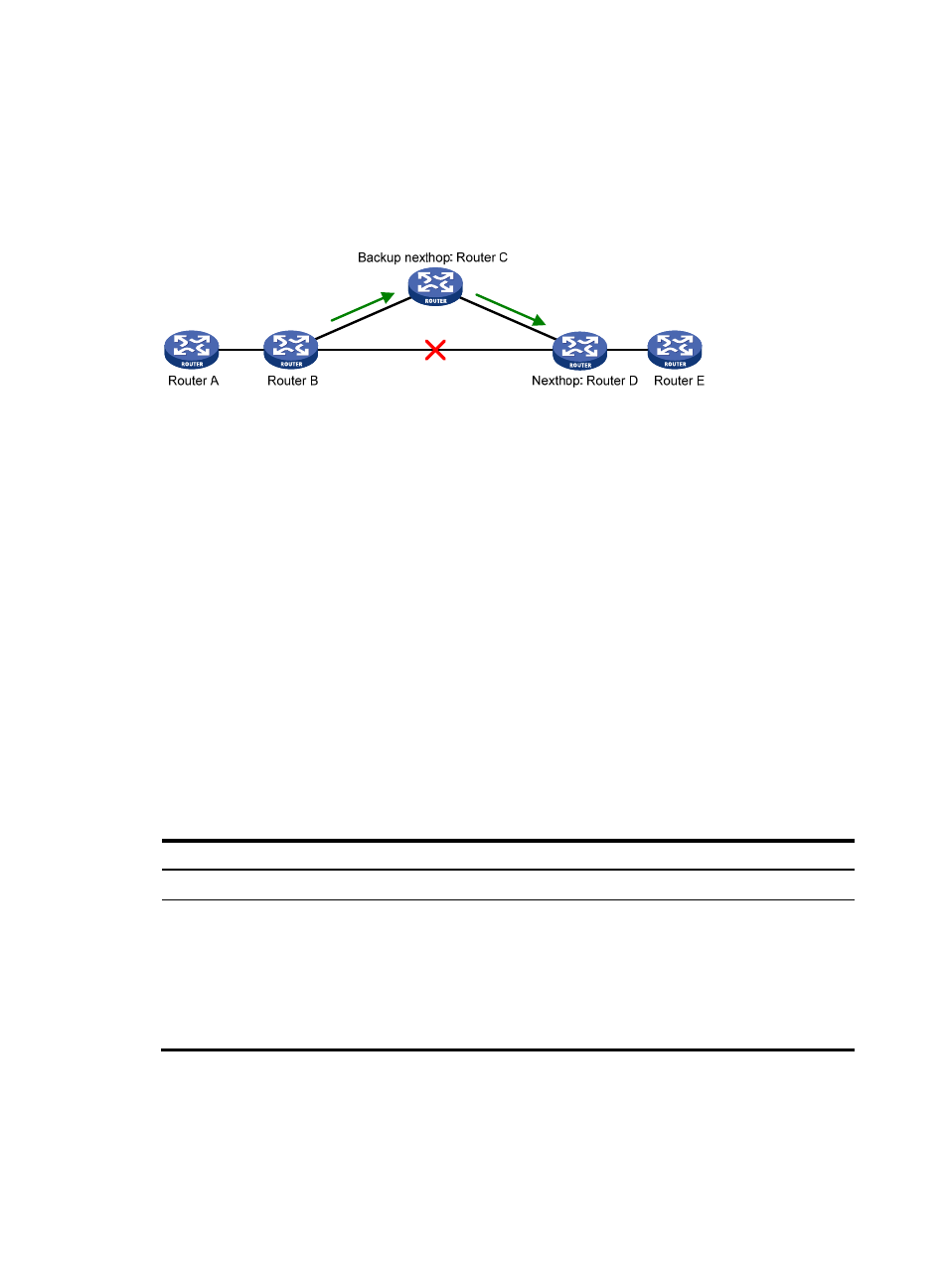Configuring static route frr, Configuration guidelines, Configuration procedure – H3C Technologies H3C S5560 Series Switches User Manual
Page 28

12
Configuring static route FRR
A link or router failure on a path can cause packet loss and even routing loop. Static route fast reroute
(FRR) uses BFD to detect failures and enables fast rerouting to minimize the impact of link or node failures.
Figure 1 Network diagram
As shown in
, upon a link failure, packets are directed to the backup next hop to avoid traffic
interruption. You can either specify a backup next hop for FRR or enable FRR to automatically select a
backup next hop (which must be configured in advance).
Configuration guidelines
•
Do not use static route FRR and BFD (for a static route) at the same time.
•
Static route does not take effect when the backup output interface is unavailable.
•
Equal-cost routes do not support static route FRR.
•
The backup output interface and next hop cannot be modified, and cannot be the same as the
primary output interface and next hop.
•
Static route FRR is available only when the state of primary link (with Layer 3 interfaces staying up)
changes from bidirectional to unidirectional or down.
Configuration procedure
Configuring static route FRR by specifying a backup next hop
Step Command
Remarks
1.
Enter system view.
system-view
N/A
2.
Configure the source
address of BFD echo
packets.
bfd echo-source-ip ip-address
By default, the source address
of BFD echo packets is not
configured.
For more information about
this command, see High
Availability Command
Reference.